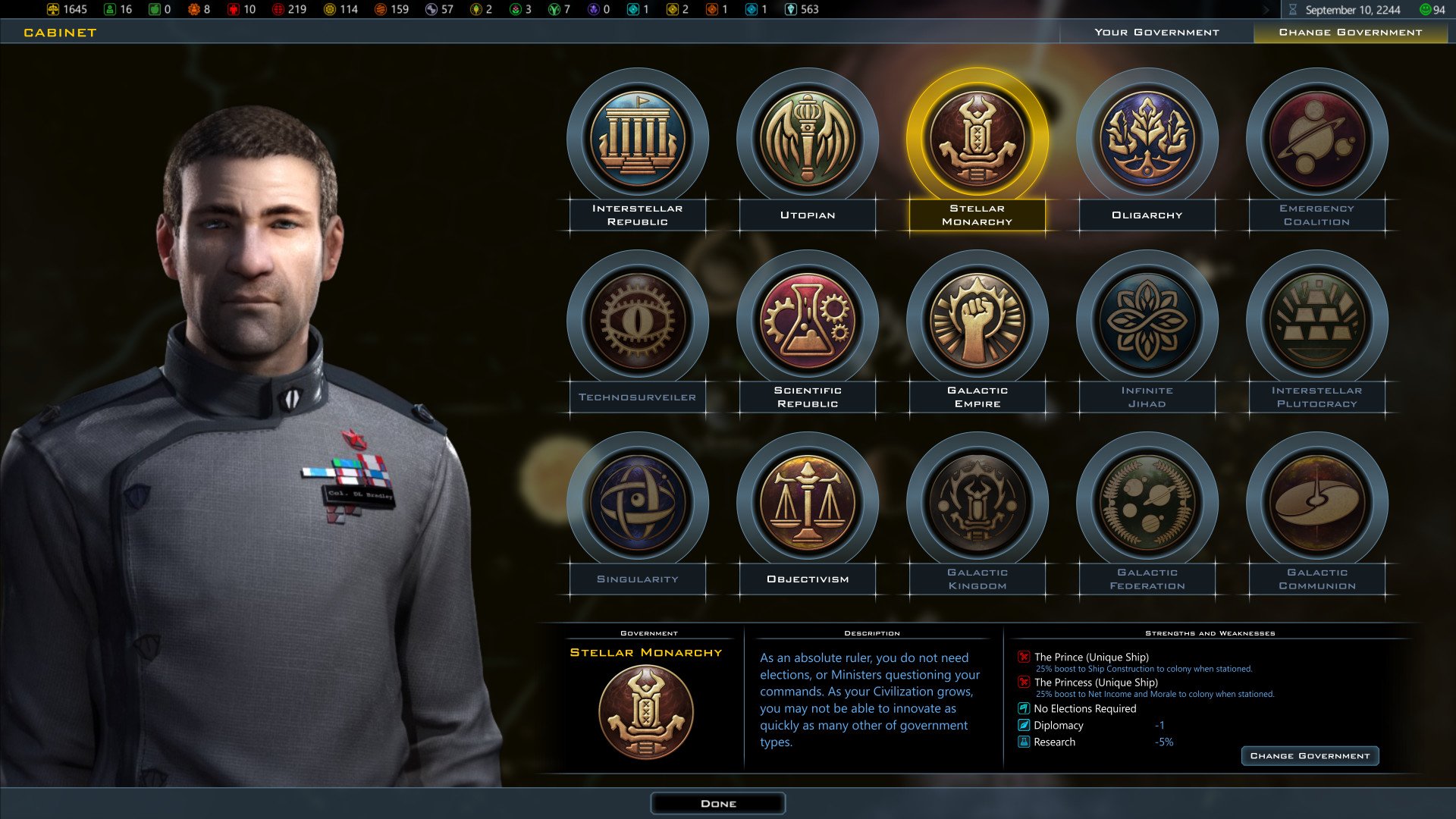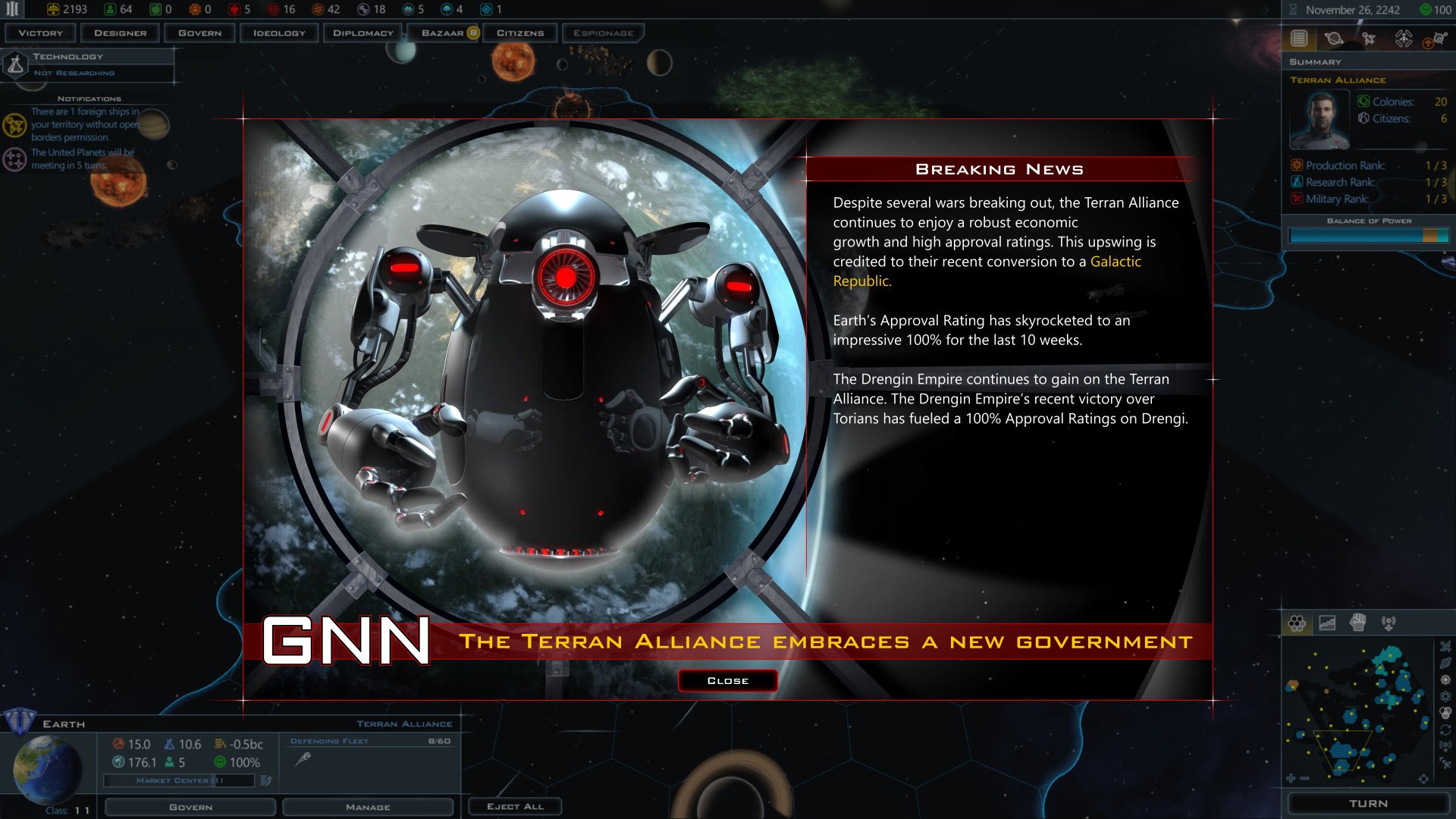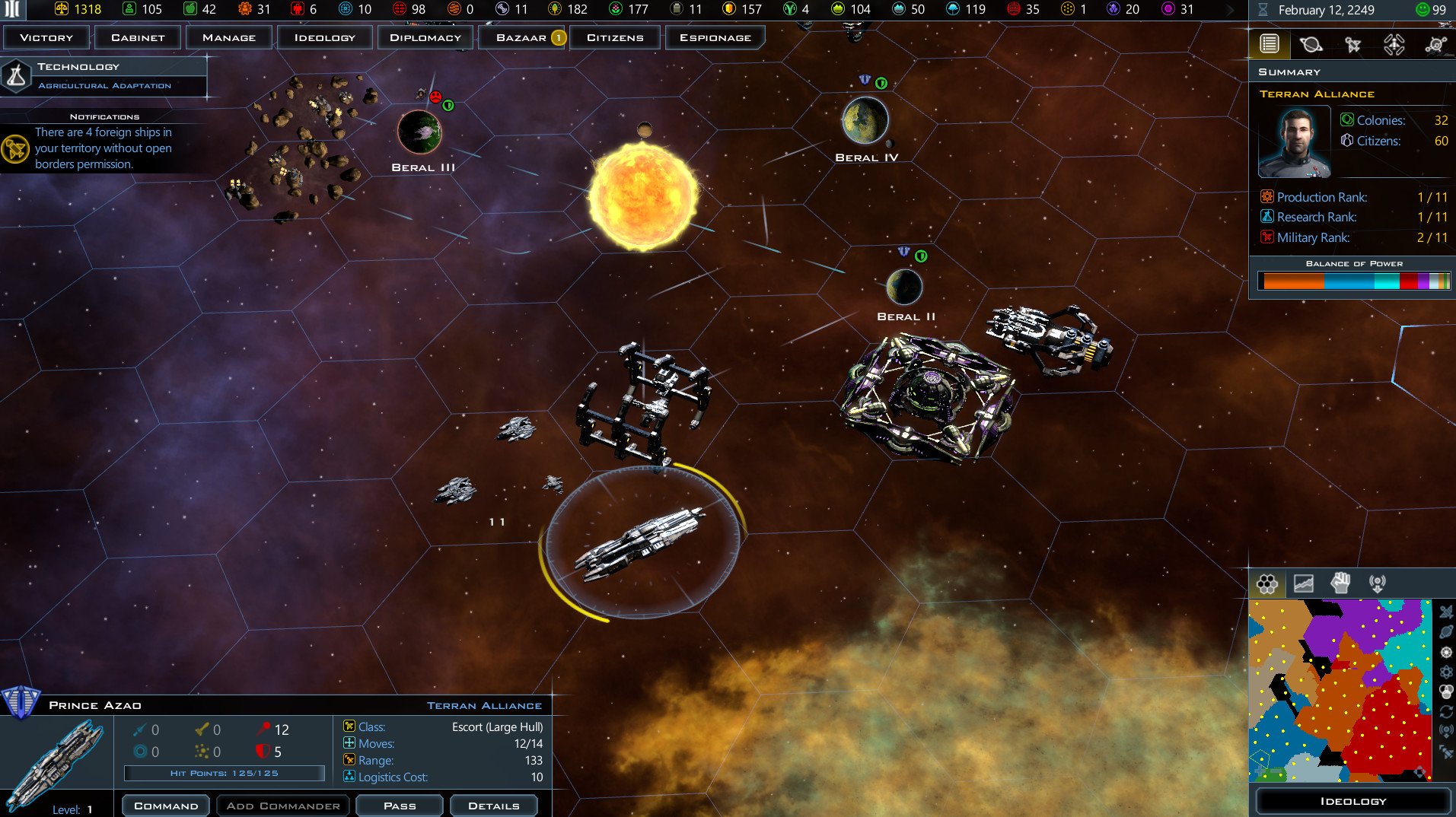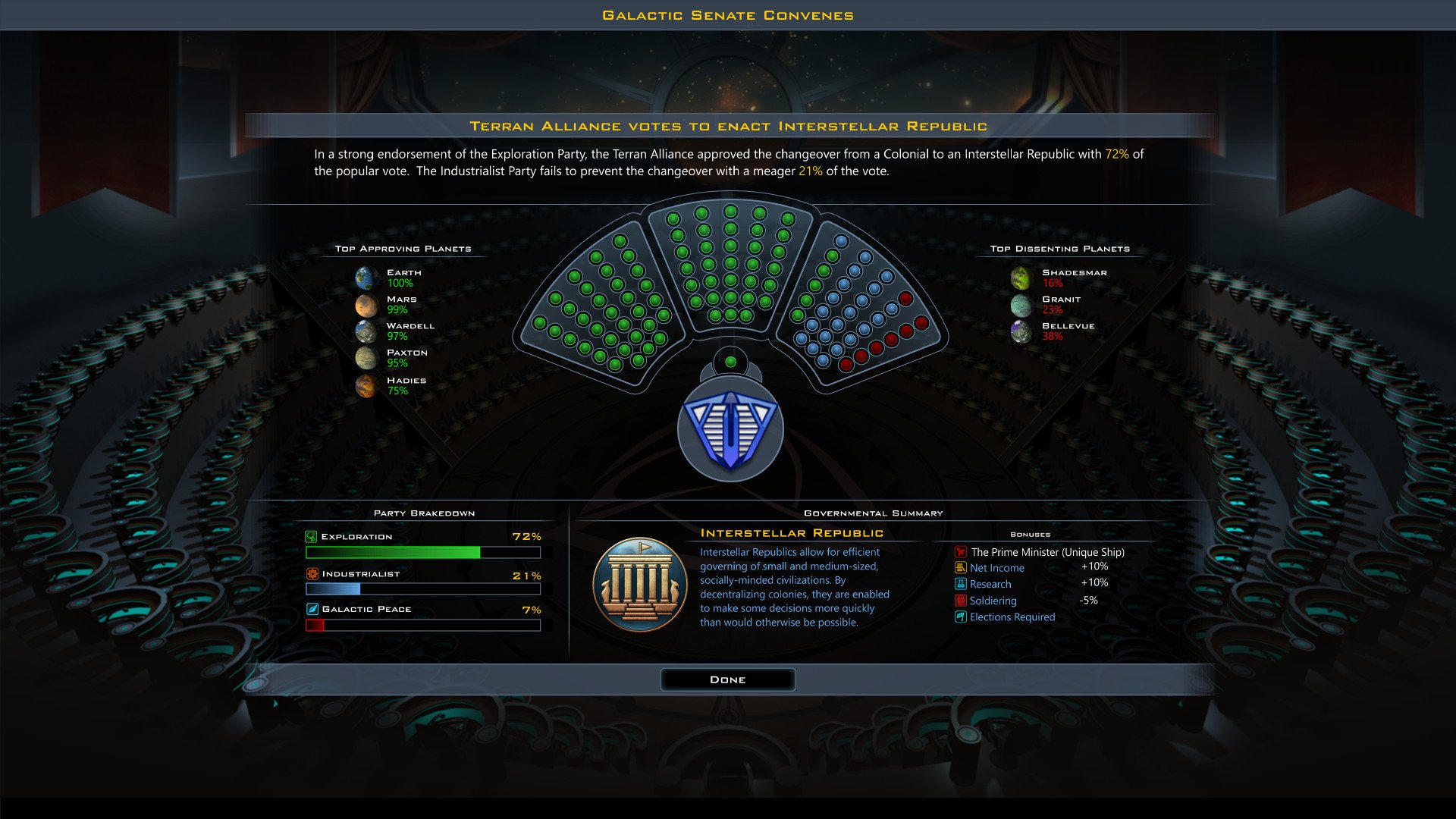Galactic Civilizations III 'Intrigue' expansion spotlights the growing pains of an empire
The upcoming Galactic Civilization III expansion, Intrigue, leads humanity beyond the Earth's atmosphere.

All the latest news, reviews, and guides for Windows and Xbox diehards.
You are now subscribed
Your newsletter sign-up was successful
Humanity is a species evolved around intrigue. We're always wondering about different things, particularly with the universe and space. What's really out there? Will we ever see a Death Star be created within the Milky Way? This human quality is also something Stardock has used to craft the latest expansion to its hit game Galactic Civilizations III, aptly named "Intrigue."
Set to roll out sometime this spring, Stardock CEO Brad Wardell delved into some detail about how galactic governments will work and what could be in the cards for humanity when we enter the space-faring age.
Is anybody out there?

In a blog post, Wardell mentioned the time it took the Curiosity rover to send a signal back to Earth from Mars: 12 minutes and 48 seconds. Mars isn't too far from Earth considering the seemingly endless size of the universe. It took nearly thirteen minutes for us to beam data between two planets in our own solar system. Problems arise when one needs to know immediately about something, be it an issue with a spacecraft or other time-sensitive data.
Asking for an update from someone who may be located on Mars could take up to half an hour for a response to come through — taking into account the time it takes for signals to hit the red dwarf and then to return to Earth. As Wardell notes in his post, this "leaves a lot of time for uncertainty, for doubt, for fear ... for intrigue." Should a space station in orbit experience difficulties, personnel on Earth would have to wait to find out the current situation and if there was any loss of life.
If we colonized Mars, would citizens be of Mars or Earthbound nation-states?
That's but one issue with humanity's expansion into space. "Let's presume humans get to Mars in the 2030s. Let's also presume that at some point soon, we actually plant a colony on Mars. Are those colonists citizens of Mars? Or are they citizens of their respective, Earthbound, nation-states?" Wardell wrote. The notion of a nation-state comes into question when talking about different planets, and how the species is going to approach such issues is going to take much thought and discussion.
Would the colony wish for independence from Earth? Would the political climate on Earth affect extraterrestrial territory?
For the Commonwealth

Stardock is wanting to emulate some of these problems to make the initial early game feel more like an expansion of a species, rather than simply copying and pasting people to different planets. In Intrigue, after a third planet has been colonized, citizens begin to demand a new type of government. "Much of our time has been spent trying to think through how these government types might evolve. These governments would be different based on civilization," Wardell wrote.
All the latest news, reviews, and guides for Windows and Xbox diehards.
Wardell makes an interesting point, "In the early stages, we would likely operate as some sort of colonial government. That is, Earth would call the shots and each world would have its own governor that would be elected by the people. But the people wouldn't have much to say regarding events back on Earth." Each planet would play the part as a voting bloc until population numbers rise enough for it to challenge for independence or at least a different form of intergalactic government that caters to all citizens.
It's easy to ignore issues at home when fighting a war from afar.
In Intrigue, Galactic Civilizations III will allow the player to select from various forms of government. It will even be possible to form a sort of commonwealth, allowing the AI to take control of planets and take on some of the micro-management burdens to free up more time for defense and expansion planning. How each civilization approaches various issues and strains that occur as part of taking to the stars will dictate how unified the populous will be under a single banner.
It's easy to forget that Galactic Civilizations as a series has been more than about shooting down huge fleets of ships. It's also about managing a successful and stable empire, keeping the population not only in order but happy with how things are progressing. Intrigue is set to add more tools to the player to tackle a more realistic approach to expanding and building a galactic empire.

The year 2018 should be an exciting time for space strategy game fans. Galactic Civilizations III and Stellaris are two popular titles in the genre that are implementing new features that reflect how humanity is set to advance on our current trajectory. New projects are underway with the goal of taking humans outside our own solar system, and it's interactive entertainment with immersive experiences that make us all hope that one day we'll be able to see Earth from afar.
Until then, we have the upcoming Intrigue expansion for Galactic Civilizations III to enjoy, which is slated for release sometime this spring.

Rich Edmonds was formerly a Senior Editor of PC hardware at Windows Central, covering everything related to PC components and NAS. He's been involved in technology for more than a decade and knows a thing or two about the magic inside a PC chassis. You can follow him on Twitter at @RichEdmonds.
